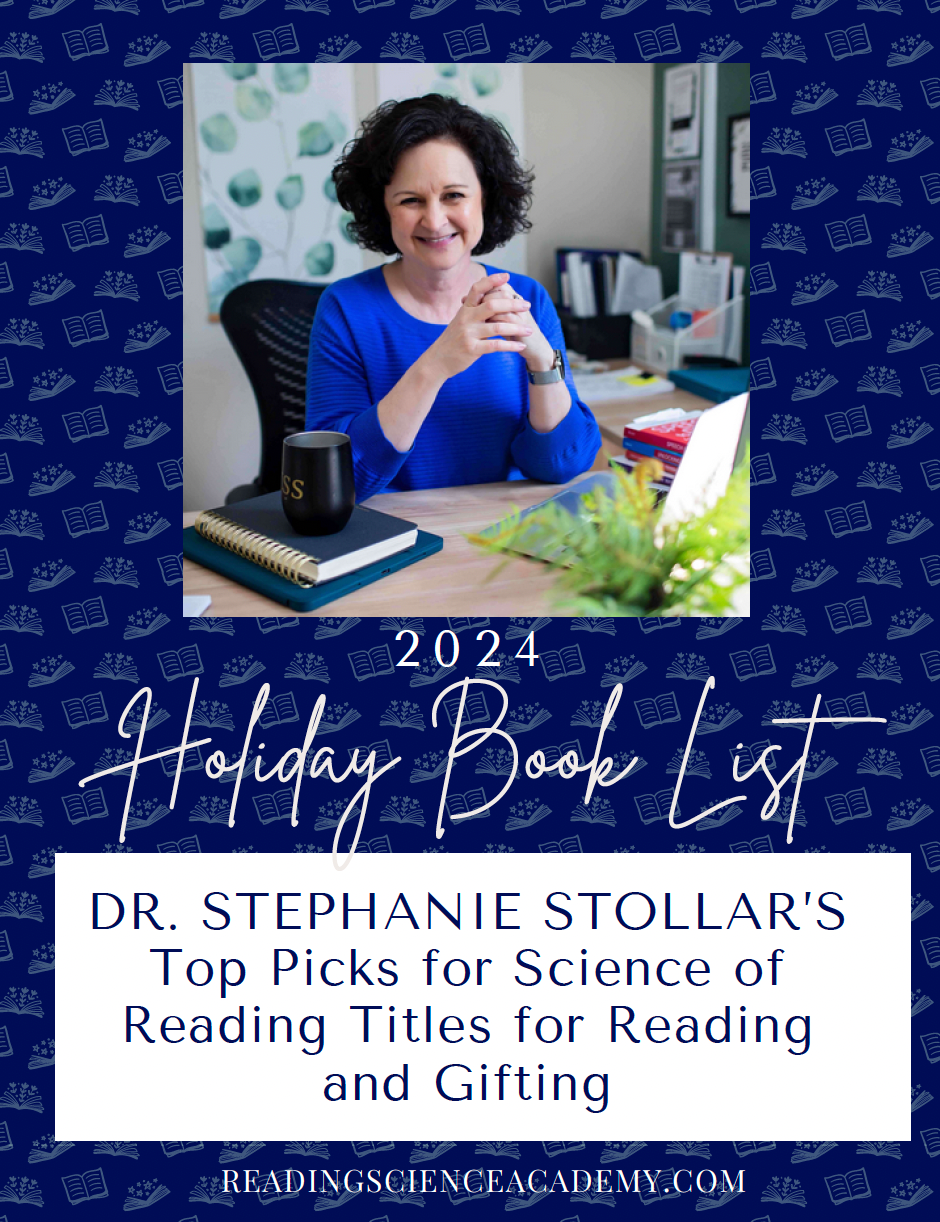Get Dr. Stephanie Stollar's holiday reading and gift guide
November 3, 2025
Best Education Books for Teachers: Stephanie Stollar’s 2025 Holiday Reading List
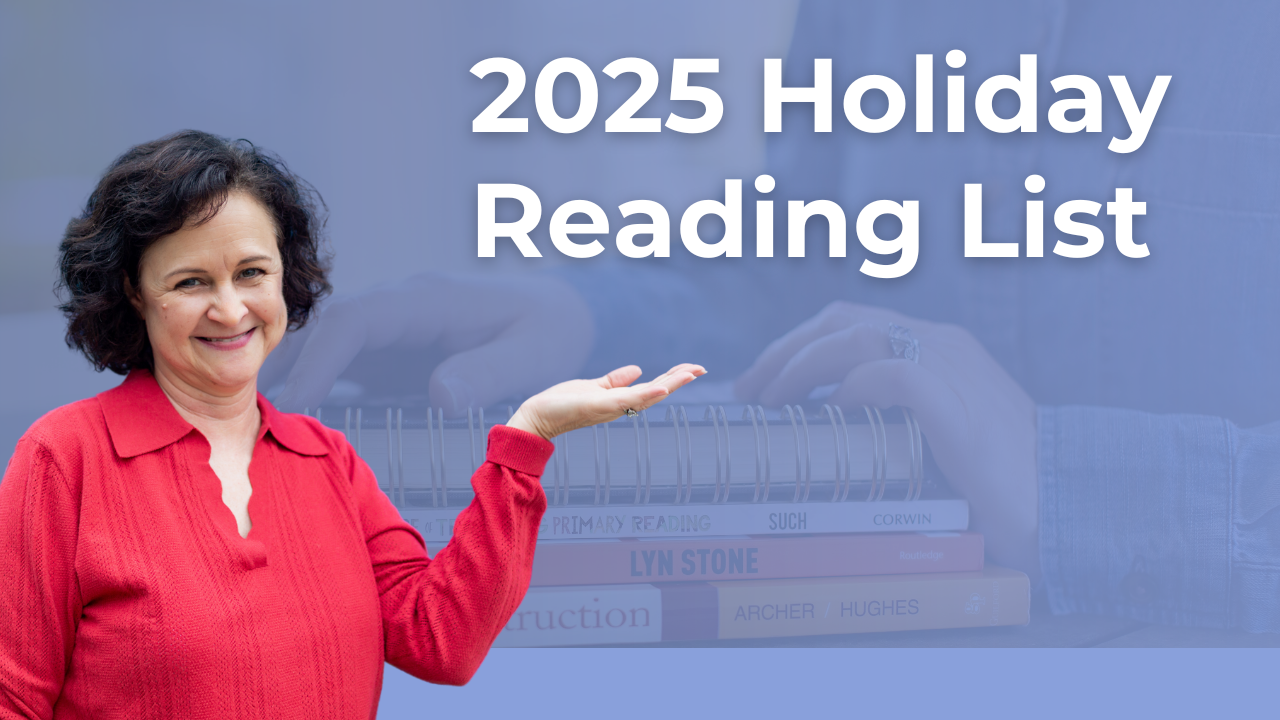
The holiday season offers something teachers rarely get: time to pause, recharge, and reflect. Between lesson prep and data meetings, it’s easy to forget that your own professional learning matters, too.
That’s why I’ve curated this year’s Holiday Book List. I’ve included tried-and-true re-reads and new favorites that connect the science of reading and the science of learning to practical implementation across all grade levels.
Whether you’re updating your classroom practice, leading a literacy team, or preparing future teachers, these are the books that will stretch your thinking and strengthen your instruction.
For each book, I’ve given you links to purchase on Amazon or support local bookstores by shopping on Bookshop.org. If you purchase through one of my links, I’ll get a small commission to help fund the work I do at Reading Science Academy.
Get the full list on Bookshop.org.
Oldies But Goodies - Books Every Educator Should Read
1. Schools That Succeed by Karin Chenoweth
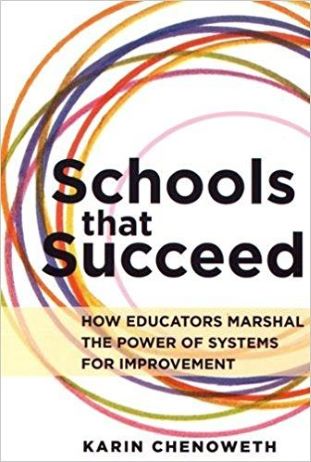
Buy on Bookshop.org
Buy on Amazon
If you’re feeling discouraged about school change and need a dose of inspiration, Schools That Succeed belongs at the top of your list. Author Karin Chenoweth spent a decade visiting high-poverty schools and interviewing leaders and staff to uncover what made them defy the odds.
Rather than focusing on student challenges, this book zooms in on leadership, systems change, and shared belief in students’ potential. It’s a powerful reminder that sustainable improvement starts with adults who organize schools around teaching and learning.
2. Understanding and Teaching Reading Comprehension by Jane Oakhill, Kate Cain, and Carsten Elbro
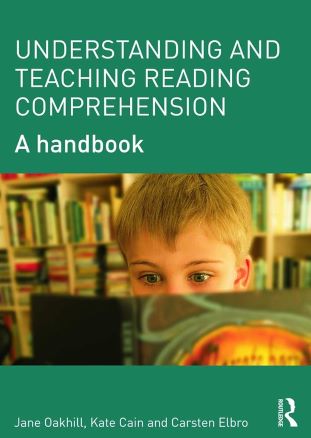
Buy on Bookshop.org
Buy on Amazon
If you’ve spent years deepening your understanding of word recognition and are ready to shift your focus to reading comprehension, this is the perfect next step. Designed for pre-service and in-service teachers, as well as teacher educators, this book explains what comprehension is, how it develops, and why some students struggle.
It connects comprehension to word recognition, explores how to assess it effectively, and offers practical teaching strategies grounded in research.
New and Notable Books for Educators in 2025
These newer titles stand out for their accessibility and relevance, especially for coaches, administrators, and teachers across subjects and grade levels.
3. Smart Teaching, Stronger Learning edited by Pooja K. Agarwal, Ph.D.
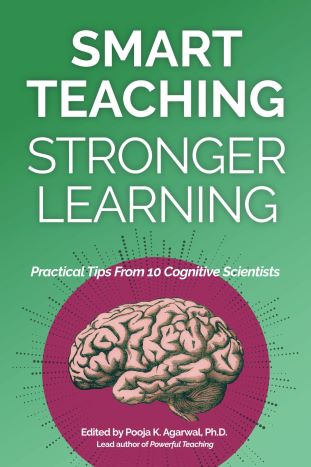
Buy on Bookshop.org
Buy on Amazon
This collection makes the science of learning remarkably digestible. Each short chapter features a leading cognitive scientist explaining how to translate research into classroom practice. Every section includes an overview of the evidence, clear descriptions of teaching strategies, and suggestions for further reading.
It’s an easy, inspiring book to pick up between grading sessions or coaching meetings.
4. Just Tell Them by Zach Groshell, Ph.D.
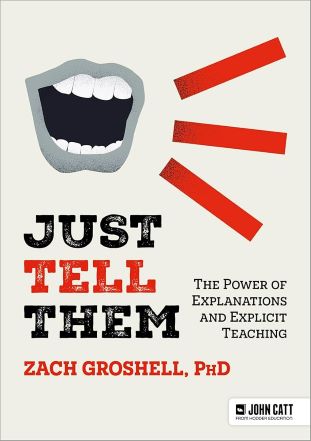
Buy on Bookshop.org
Buy on Amazon
Zach Groshell brings clarity and humor to a timely topic: why explanations matter.
Just Tell Them makes the case for explicit instruction and explores how to “show, tell, demonstrate, model, and explain” at the start of a lesson. Groshell walks through every stage of a good explanation, from grabbing students’ attention to choosing your words wisely to fading guidance as mastery develops.
5. Instructional Illusions by Paul A. Kirschner, Carl Hendrick, and Jim Heal
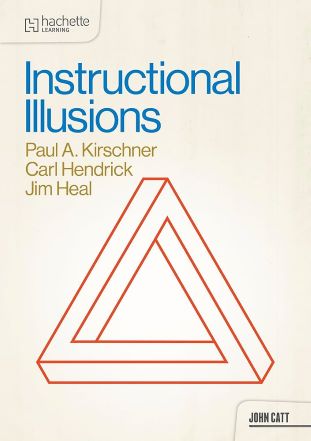
Buy on Bookshop.org
Buy on Amazon
This book is both myth-busting and empowering. Each chapter tackles a common education illusion, like engagement as a goal, learning styles, or purely student-centered teaching, and explains what the research actually says.
The authors combine educational psychology, cognitive science, and instructional design to help educators separate enduring truths from popular trends.
Topic Specific
Curious about digging deeper into one new idea? These are some of my favorite options to really expand and challenge your understanding of learning.
6. Direct Instruction: A Practitioner's Handbook by Kurt E. Engelmann
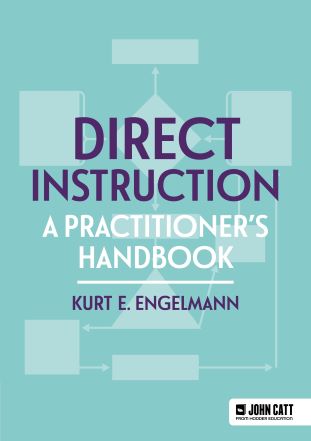
Buy on Bookshop.org
Buy on Amazon
Direct Instruction (DI) remains one of the most effective, yet misunderstood, instructional methodologies. This book clarifies what DI truly is and how to implement it with fidelity.
Focused on practical application and implementation, it demonstrates that when DI is done well, it works for all students. A must-read for coaches, administrators, and anyone working toward instructional consistency.
7. Cognitive Load Theory by Greg Ashman
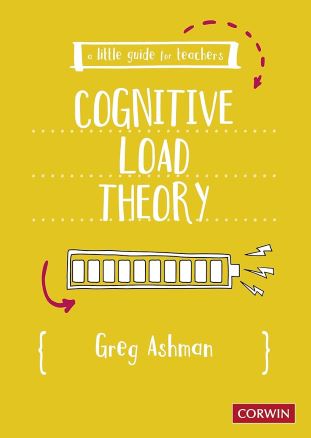
Buy on Bookshop.org
Buy on Amazon
Short, clear, and powerful, this book helps teachers understand how people actually learn. Greg Ashman explains how instruction can support rather than overload the brain’s limited working memory, ensuring new information moves to long-term memory for durable learning.
It’s ideal for teachers of all grades and subjects who want to design lessons that stick.
8. Language for Life, 2nd Edition by Lyn Stone
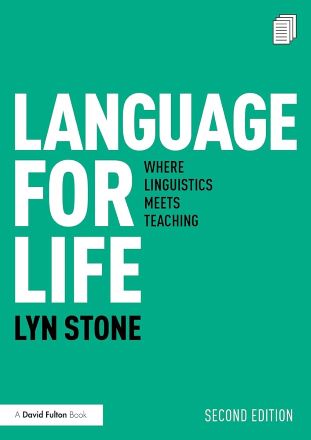
Buy on Bookshop.org
Buy on Amazon
If you’ve already mastered the word-recognition side of the science of reading and want to go deeper into language comprehension, this one’s for you. Written by linguist Lyn Stone, Language for Life unpacks syntax, grammar, morphology, punctuation, and etymology in an engaging, teacher-friendly way.
It balances background knowledge and ready-to-use lessons, helping educators strengthen students’ oral and written language.
9. Develop Expert Teaching by Peps Mccrea
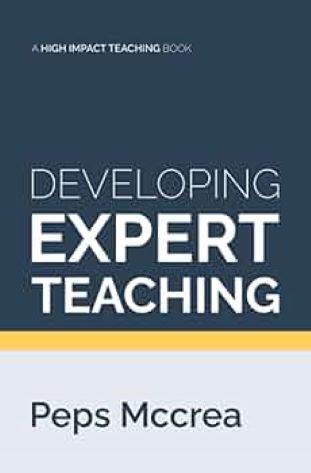
Professional learning gets the same evidence-based treatment in this quick, actionable guide from Peps Mccrea. In Develop Expert Teaching, he outlines six key ingredients of effective professional development and how to implement them to actually change practice.
Perfect for coaches, professional development leaders, and administrators who want to build real expertise across teams, not just compliance.
Final Thoughts
These books are fuel for growth. Whether you’re curling up by the fire or mapping out PD goals for 2026, this list offers something for every educator committed to better outcomes for kids.
Frequently Asked Questions
Q1: What are the best professional development books for teachers in 2025?
Some of the best professional development books for educators in 2025 include titles such as Schools That Succeed by Karin Chenoweth, Smart Teaching, Stronger Learning edited by Pooja K. Agarwal, and Develop Expert Teaching by Peps Mccrea. These works blend evidence-based research, practical strategies, and actionable frameworks suited for today’s teachers and instructional leaders.
Q2: Which books help educators understand the science of reading and MTSS?
Books that support educators in deepening their understanding of the science of reading and MTSS include Understanding and Teaching Reading Comprehension by Jane Oakhill, Kate Cain, and Carsten Elbro, as well as Instructional Illusions by Paul A. Kirschner, Carl Hendrick, and Jim Heal. These texts offer insights into reading comprehension, language structure, and how to build a tiered system of supports in schools.
Q3: What are the must-read education books for instructional coaches?
For instructional coaches, books like Just Tell Them by Zach Groshell and Develop Expert Teaching by Peps Mccrea stand out. They address how to design effective professional learning, support teacher growth, implement explicit instruction, and translate research into practice, all essential competencies for coaching impact.
Q4: What books explain direct instruction and cognitive load theory for teachers?
Key titles for understanding direct instruction and cognitive load theory include Direct Instruction: A Practitioner’s Handbook by Kurt E. Engelmann and Cognitive Load Theory by Greg Ashman. The former delves into the design and implementation of highly effective instructional methods, while the latter explains how working memory, long-term memory, and instructional design intersect to support learning.
Q5: What are the best teacher education books for developing expert teaching?
Teacher educators and faculty responsible for preparing future teachers will benefit from texts like Smart Teaching, Stronger Learning edited by Pooja K. Agarwal, and Develop Expert Teaching by Peps Mccrea. These books provide frameworks for building a shared knowledge base in teacher preparation programs, translating complex cognitive science into accessible pedagogy, and supporting the development of teacher expertise.


